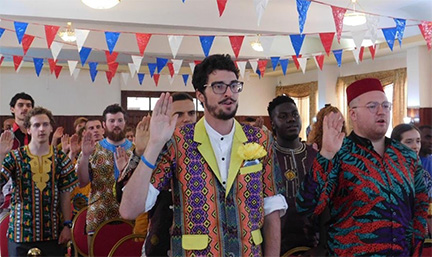PCVs pull out of most counties in Liberia amid difficulties accessing money
Thanks for the ‘heads up’ from Dale Gillis (Liberia 1964-67)

MONROVIA, Montserrado – The economic and financial crisis in Liberia has spread beyond the banking sectors and into Liberia’s struggling education sector, with a direct impact on the work of U.S. Peace Corps volunteers teaching in schools in rural Liberia.
In a statement from the Peace Corps Liberia office posted on Facebook on Thursday, Dec. 5, the group confirmed that a significant amount of its volunteers are being recalled from all other counties except three. Peace Corps attributed the move to the acute shortage of cash in the country, and the associated difficulties with accessing money from commercial banks.
It appears the crisis has significantly impacted the Peace Corps’ ability to sustain its volunteers working outside of Monrovia.
“Consequently, the Peace Corps has made the decision to reduce temporarily the number of volunteers in Liberia in order to ensure access and support to them. Peace Corps Volunteers will continue to serve in three counties – Bong, Margibi, and Montserrado,” the statement read.
“We are very appreciative of all the support our Volunteers’ communities have provided throughout Liberia.”
The reduction in volunteers is hoped to be only a temporary measure. However, it is uncertain how and when the liquidity crisis will end and the money situation restored to normalcy.
The group’s statement provided no details regarding the total amount of volunteers who are being affected. However, an inside source who spoke to The Bush Chicken on conditions of anonymity disclosed that at least 60 volunteers were affected, and will be returning home to the United States.
According to the source, only 25 volunteers would remain in Liberia, in the three counties disclosed in the group’s statement.
Efforts to clarify these numbers through the U.S. Embassy in Monrovia, and the Peace Corps offices were futile. If these numbers are correct, it would translate into a drastic reduction of 89 volunteers, from its most recent level of 114, according to the group’s official website.
The source also confirmed that the arrival of a new group of healthy volunteers, who would focus on health care management, was also canceled. The healthy volunteers were expected to arrive in February.
The liquidity crisis in Liberia appears to be the result of deliberate actions by the Central Bank of Liberia and the Ministry of Finance and Development Planning to address the country’s inflation problem. Between April and May this year, a government ‘mop-up’ exercise was expected to suck out of circulation what was believed to be excess Liberian dollars in the money market.
But the result has turned out to be empty commercial banks that cannot pay depositors due to cries of no money.
It was only on Thursday, Dec. 5 that the government announced an urgent US$52 million financing facility from the African Export-Import Bank, intended to address the illiquidity within commercial banks in the country. At least seven commercial banks are expected to benefit, namely, the Liberian Bank for Development and Investment, International Bank, Ecobank, United Bank for Africa, Guaranty Trust Bank, Afriland First Bank, and GN Bank.
The current US$52 million financing facility from the Afri-Exim Bank stems from the government’s earlier bond issuance to commercial banks honoring a US$65 million debt owed to commercial banks by the previous administration. In order to receive Afri-Exim Bank financing assistance, the bonds are said to have been discounted to 80 percent of their actual value.
It remains to be seen whether or not the Afri-Exim Bank financing measure will permanently relieve Liberia’s liquidity crisis. What is clear by the reduction of Peace Corps volunteers, however, is that like a contagion, the liquidity crisis has begun to affect other sectors of the Liberian society, particularly the already stressed education sector.
For now, the Peace Corps’ long history of service and volunteerism in Liberia dating back to 1962 will be temporarily, but significantly, scaled back until the crisis abates.
It remains anyone’s guess how long this will take.
Where is Dale Gillis now? He used to live in the apartment above us in Monrovia.
https://peacecorpsworldwide.org/dale-gilles-liberia-remembers-november-22-1963/
update bio says he lives in Thailand.